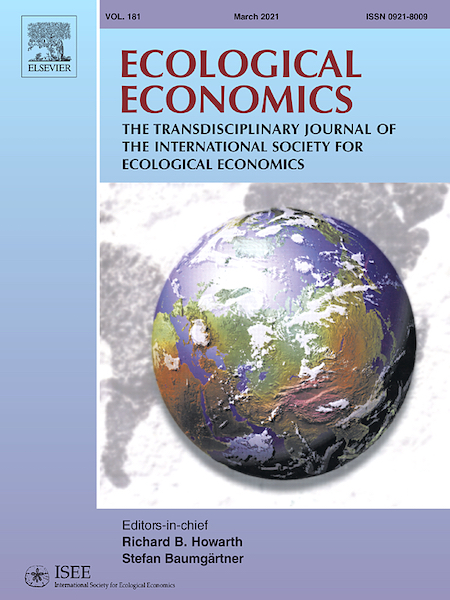Publication : « Plastic pollution and economic growth: The influence of corruption and lack of education »
Cordier, M., Uehara, T., Baztan, J., Jorgensen, B., Yan, H., (2021). Plastic pollution and economic growth: The influence of corruption and lack of education. Ecological Economics, Volume 182, April 2021 (hal-03117552)

Green economic growth led by technological solutions is often mentioned as a solution for mitigating plastic pollution. However, economic growth appears to be in contradiction to planetary boundaries. By developing two worldwide socio-economic models, for forecasting inadequately managed plastic waste up to the year 2050 across 217 countries and territories, we demonstrate the adverse ecological impacts of the lack of regulatory processes and educational environmental programs. We used country-by-country data from the World Bank for the model estimates. The global cumulative stock of plastic waste that is inadequately managed is predicted to increase from 61–72 million metric tons (MT) in 1990 to 5109–5678 MT by 2050. Four scenario analyses told different stories: The business-as-usual (BAU) scenario, mitigation scenario 1: Capping GDP, mitigation scenario 2: Extending education, and mitigation scenario 3: Fighting corruption. In “capping GDP,” the annual amount of inadequately managed plastic waste slightly increases and reaches 64–119 million MT/year in 2050 instead of 61–110 million MT/year in the BAU scenario. In the “extending education” scenario, the amount decreases by 34% compared to the BAU scenario in 2050. In the “fighting corruption” scenario, the amount decreases by 60%. We provide further details in the country-by-country predictions.



